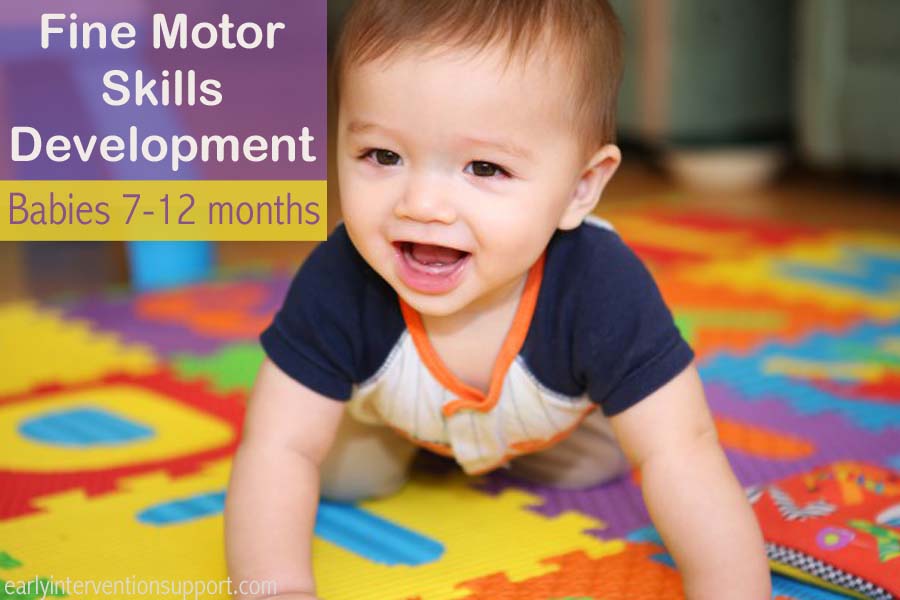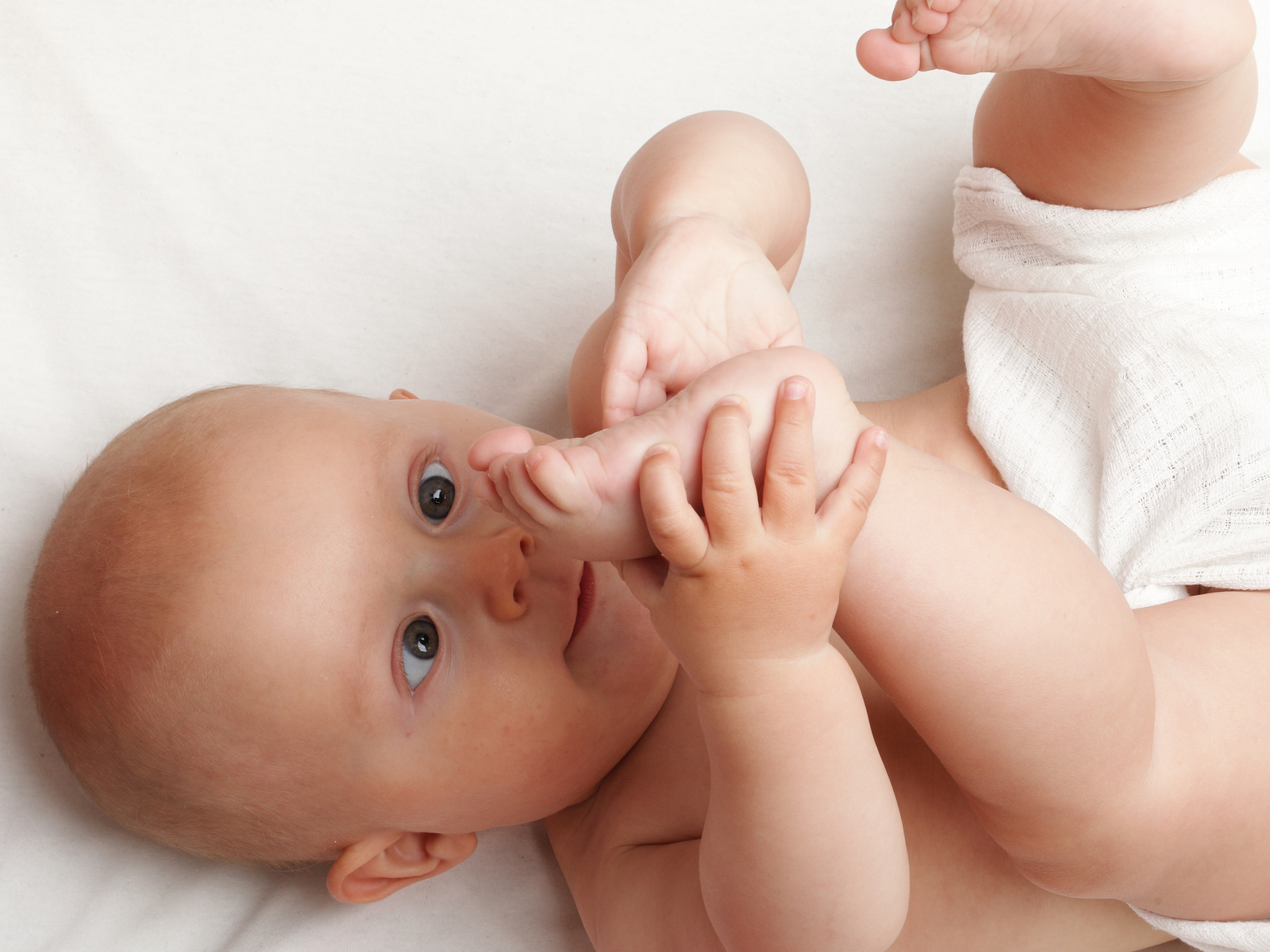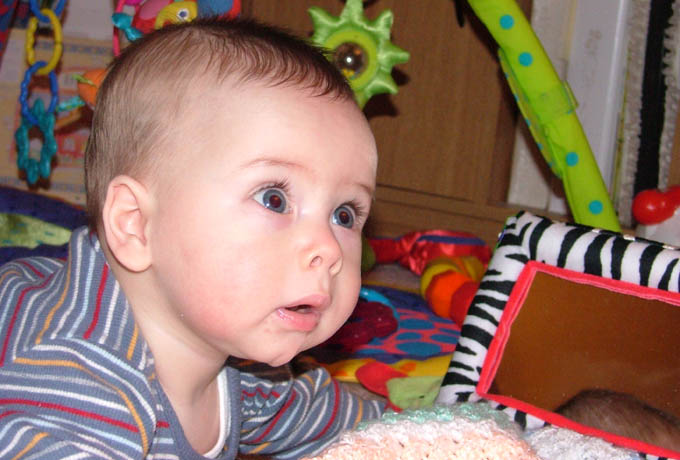By 18 Months, most toddlers can: Build a tower using 2 cubes Use hands together at midline (middle of the body) Scribble Point with pointer finger Hold cup and drink – some spilling will occur Remove socks Place hats on heads Parenting Tips for Fine Motor Skills: You can help with baby developmental milestones. Suggested play to help a baby …
Fine Motor Skills for Toddlers Aged 12 – 16 Months
At this level of development, your baby is favoring use of one hand. While viewing books, he or she will be pointing to pictures. He or she will be gripping objects and releasing into a container. While one hand holds an object, the other hand explores and manipulates. Your baby is happy to build block towers, climb onto furniture, and climb …
Fine Motor Skills Development for Babies 7 – 12 Months
Between the ages of about seven and nine months, your baby will probably start getting into a hands-and-knees position for crawling. Even before he actually starts moving forward in this position, the rocking back and forth that he does is very important to his hand development. Holding himself up in that manner will not only strengthen his shoulders, hips, and …
Fine Motor Skills Milestones Between 3 to 6 Months
At this stage, your baby is beginning to have more control of his or her grasp, and will make an effort to hold onto objects. He or she still is not able to let go of them very well, but their hand is starting to mold itself around the shape of the object she’s holding. By about five months, many …
Fine Motor Skills Development for Infants to Babies Aged 3 Months
At birth, babies have very little control of their arms and hands. They usually wave their arms randomly and keep their hands in a fisted position. They have a strong grasp reflex, as any caregiver who has tried to pry an object from a new baby’s hand can tell you. Not only is the grasp reflex strong, the baby’s ability …
Baby Exercise Equipment & Development
Walkers, Exersaucers & Jumpers: Is There an Impact on a Baby’s Development? More and more baby “exercise equipment” becomes available to parents every year and often parents ask us questions during therapy sessions and evaluations such as “Should I get a walker for my baby?” or “Will using a bouncer help strengthen my babies leg muscles?”. You will find varying …
Helping Children with Autism Spectrum Disorder Avoid Mealtime Stress
Many children experience mealtime problems at some point, including inconsistent appetite, pickiness, fear of new foods, clumsiness with self-feeding, or difficulty sitting still. These challenges are often more pronounced in children with Autism Spectrum Disorders (ASD). In addition to the social and communication impairments that characterize ASD, there may be difficulties with sensory processing, motor skills, attention, and behavior. For …
How to Potty Train Your Child With Special Needs
If your child is diagnosed with autism, Down Syndrome, mental retardation, cerebral palsy, or other condition of developmental delay, it may be more difficult to train him or her to use a toilet. Signs Your Child with Special Needs is Ready for Potty Training While most children between 18 months and 3 years of age are ready to learn to …
Techniques for Engaging in Play to Develop Gross Motor Skills
We all know that children learn through play, but sometimes, despite the back flips and cartwheels we try, kids just don’t seem terribly interested in our attempts at engaging them in play. Parenting Tips for Gross Motor Skills Before stepping up your efforts to even more outrageous antics, make sure that all of your child’s basic needs are met. As …



